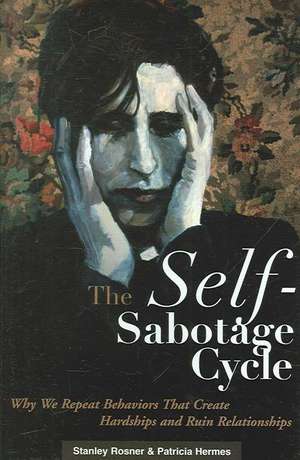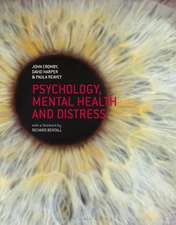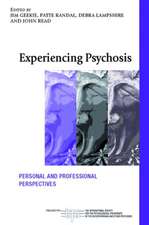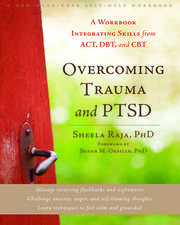The Self-Sabotage Cycle: Why We Repeat Behaviors That Create Hardships and Ruin Relationships
Autor Stanley Rosner, Patricia Hermesen Limba Engleză Hardback – 29 oct 2006 – vârsta până la 17 ani
Preț: 345.58 lei
Preț vechi: 556.21 lei
-38% Nou
Puncte Express: 518
Preț estimativ în valută:
66.13€ • 69.22$ • 55.04£
66.13€ • 69.22$ • 55.04£
Carte tipărită la comandă
Livrare economică 31 martie-14 aprilie
Preluare comenzi: 021 569.72.76
Specificații
ISBN-13: 9780275990039
ISBN-10: 0275990036
Pagini: 192
Ilustrații: black & white illustrations
Dimensiuni: 156 x 235 x 21 mm
Greutate: 0.44 kg
Ediția:annotated ed.
Editura: Bloomsbury Publishing
Colecția Praeger
Locul publicării:New York, United States
ISBN-10: 0275990036
Pagini: 192
Ilustrații: black & white illustrations
Dimensiuni: 156 x 235 x 21 mm
Greutate: 0.44 kg
Ediția:annotated ed.
Editura: Bloomsbury Publishing
Colecția Praeger
Locul publicării:New York, United States
Notă biografică
Stanley Rosner, Ph.D., is a Clinical Psychologist who has been in private practice for 40 years. He is a staff member in the Department of Psychiatry at Bridgeport Hospital, an adjunct medical staff member in the Department of Psychiatry at Norwalk Hospital, and a Fellow of the American Psychological Association, the National Academy of Neuropsychologists, the Society for Personality Assessment, and the Connecticut Psychological Association. He has served as President of the Connecticut Psychological Association and President of the Connecticut Society of Psychoanalytic Psychologists.Patricia Hermes is a Connecticut-based author whose work includes 40 novels for young readers. Her awards for her books include the Smithsonian Notable Book, the C.S. Lewis Honor Book, the California Young Reader Medal and the New York Library Best Book for the Teen Years Award.
Recenzii
From the viewpoint of clinical practice, the book is an enlightening account of the dynamics of the repetition compulsion--a tendency to repeat certain forms of behavior that are compulsive and destructive at the same time. The authors have offered an in-depth analysis of what causes this form of behavior, the various ways in which it manifests itself and finally suggest ways to overcome it. The book starts with interesting and day-to-day examples of relatively harmless forms of repetitive behavior arousing the curiosity of the reader. Later, the authors go on to describe the more destructive forms of repetitive behavior and its overpowering nature, which often result in hardships in one's interpersonal relationships at work and home..[t]he book is an interesting read and will largely appeal to people inclined towards psychology.
Rosner, a clinical psychologist, and Hermes, an author, discuss the cycle of self-destruction that affects some people in interpersonal relationships, its causes, and how to recognize and change it. Through stories of cases, they describe repetitive behavior arising from early childhood, in marriage, in child rearing, on the job, and in ways people try to rescue or repent. Addictions and repetition compulsion are also covered.
Rosner, a clinical psychologist, and Hermes, an author, discuss the cycle of self-destruction that affects some people in interpersonal relationships, its causes, and how to recognize and change it. Through stories of cases, they describe repetitive behavior arising from early childhood, in marriage, in child rearing, on the job, and in ways people try to rescue or repent. Addictions and repetition compulsion are also covered.









